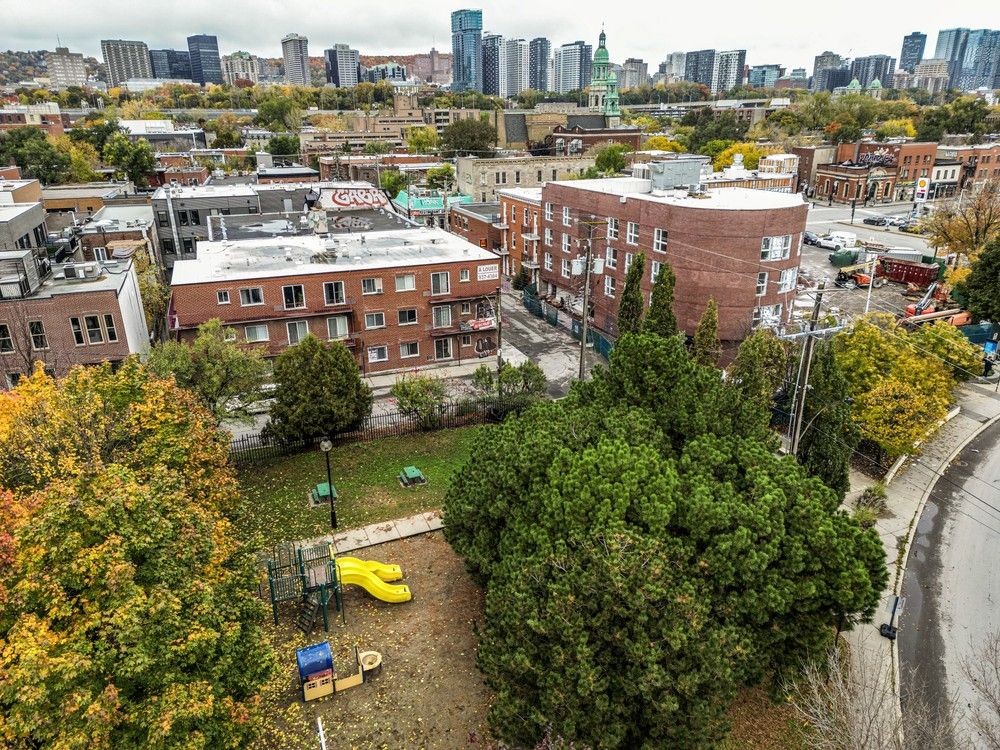
Article content
In the month since the new Maison Benoît Labre transitional housing and inhalation centre opened in St-Henri, our community feels strongly that the launch has been mishandled — and foreseeably so — by the organization and elected officials.
I study the trauma-informed treatment of mental health and addictions, but residing close to the centre, I have felt conflicted from speaking to something professionally that affects me personally. That concern ended when I saw that borough Mayor Benoit Dorais said “there haven’t been any serious incidents so far.”
Article content
I cannot remain silent.
My neighbours and I have had to clear away people injecting drugs. We called police after seeing a neighbour assaulted. Someone with me had to pull the man off our neighbour. I chased away a man standing, pants down in broad daylight, masturbating and banging on a neighbour’s window. Police arrived 45 minutes later. My young children have witnessed sex acts on a sidewalk. All of this has been accompanied by an influx of new people in distress and dealers drawn to the area.
It would be disingenuous not to acknowledge that the area around the Lionel-Groulx métro station has had its challenges, but the new reality is far removed from people’s experiences before the centre’s move. Its clients were uprooted into a neighbourhood where they don’t know the lay of the land. A move of even a kilometre can be disruptive to clients who must learn new environs.
It has been particularly irksome to hear politicians opine about “not in my backyard” attitudes in the community, when one of the most vocal proponents of the new location — Dorais — lives on the block abutting its former location. In other words, it is no longer in his backyard.
Article content
Harm reduction works for the people it serves when done well by professional staff. But while the evidence base for harm reduction and housing-first models demonstrates their effectiveness, what it doesn’t support is a completely permissive approach to community safety. As a social work educator, I see in Maison Benoît Labre an organizational case study on how not to build community trust.
At public meetings last fall, pronouncements were made about how the facility would be staffed by social workers and nurses and that there’d even be a physician’s office. I think it important that public officials who are funding the organization and approving the injection/inhalation exemption, and journalists, begin asking pointed questions of the organization’s board about whether, and how many, licensed and credentialed social work and nursing staff are present on site for each day and evening shift.
Before the centre opened, community resistance was narrowly focused on the injection-site aspect. The discussion, sadly, now extends to the entire facility, risking the baby being thrown out with the bathwater. There is no evidence in the professional literature I have read that co-mingling transitional housing with a supervised injection/inhalation day-site is a prudent move in supporting recovery of those newly housed.
I make no apologies in affirming I don’t want my children seeing sex acts on the way home from school. I feel no shame in saying it is not acceptable to have people publicly masturbating or assaulting neighbours.
Communities, much like the families who comprise them, can be both compassionate and set firm boundaries about unacceptable public behaviour that harms people and traumatizes children.
It is compassionate to demand more from politicians and the Benoît Labre board.
Michael MacKenzie is the Canada Research Chair in child well-being and professor of social work and pediatrics at McGill University.
Share this article in your social network